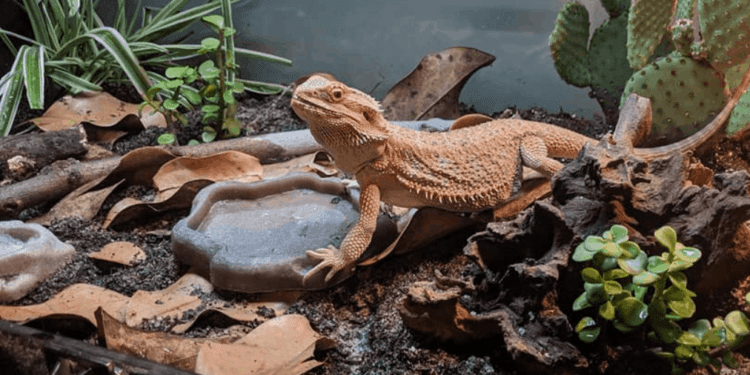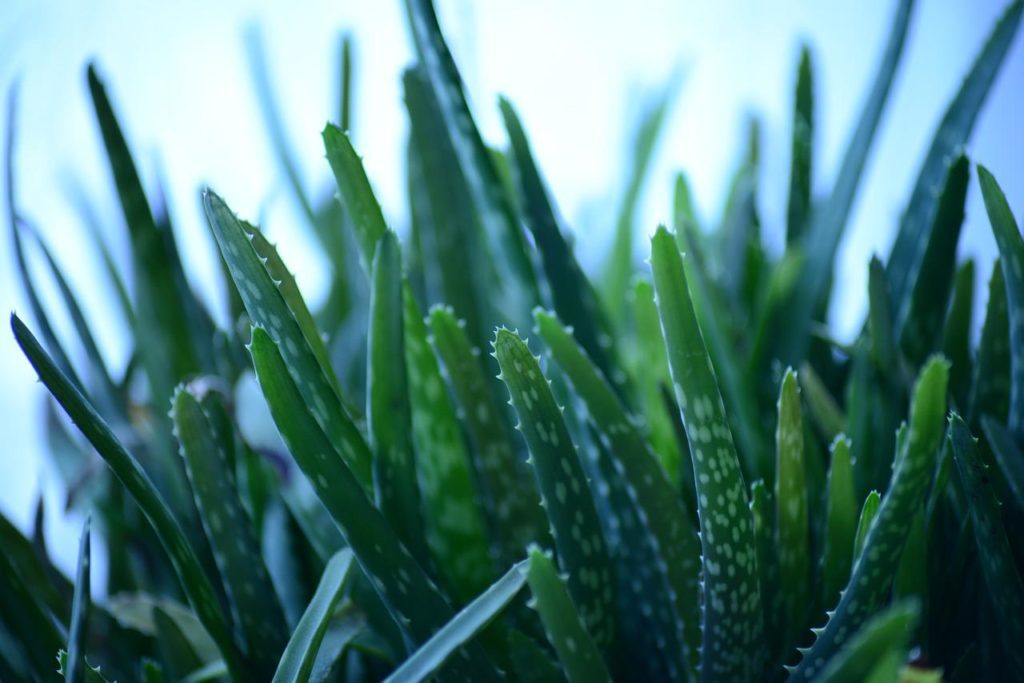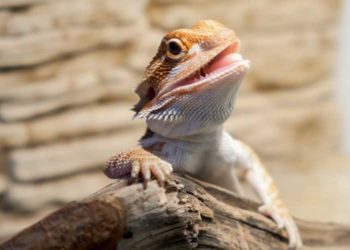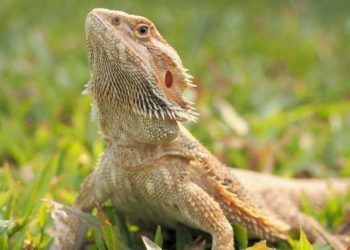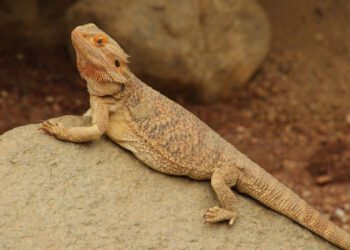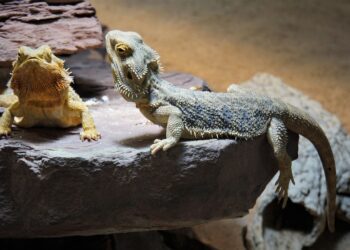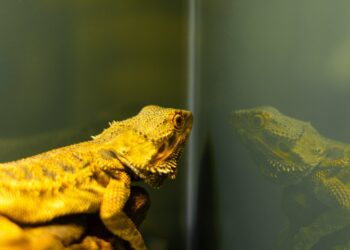First of all, you need to know about bearded dragons, their behavior, their diet, and also their habitat. POGONA VITTICEPS is the scientific name of this species. It is a Greek word in which Pogon means beard and Vitticeps means striped beard.
Pogonias are classified by their broad triangular heads and flattened bodies. Their entire body is covered with rows and clusters of spiny scales, including a beard of spike under its chin that puffs up depending upon its mood. These dragons mostly live in warm places like Central and Southern Australia. They live in such friendly areas because these creatures are cold-blooded, so they need to live in warm places to maintain their body temperature. These dragons are popular pets because they are affectionate, gentle, curious, and active.
Contents
Facts about Bearded Dragons
- Pogona can grow up to 2 feet long.
- In cold weather, these reptiles go into hibernation.
- Bearded dragons live mainly in savannas, deserts, and woodlands.
- They lay on the rocks to sun themselves properly to raise their body temperature.
- Pogona can grow two inches per month for the first two to three months of birth.
- Tail growth can go up to more than half of its body size.
- Male Pogona can grow up to 24 inches, while females can grow up to 20 inches.
- Some of the bearded dragons can change their color during rivalry challenges.
Bearded Dragon: Characteristics
- Common Name: Bearded Dragon
- Scientific Name: Pogona
- Kingdom: Animalia
- Family: Agamidae
- Class: Reptiles
- Size: 16 – 24 inches
- Weight: 380 – 510 grams
- Lifespan: 6-15 years
- Skin Type: Scale
- Skin Color: Brown, Grey, Yellow, Green
Are bearded dragons omnivores or carnivores?
Bearded Dragons are omnivores in nature. It means they can eat plants, fruits, leaves, insects, and rodents. They eat insects such as locusts, cockroaches, and crickets. These reptiles eat once a day. When baby reptiles are growing quickly, they are likely to eat more than an adult reptile. It depends upon the source of availability also. If there is a shortage of insects and rodents, they can eat dry leaves, herbs, and sometimes fruits also like apples. Some bearded dragons also eat lizards and rodents like small mice.
Can Bearded Dragons Eat Aloe Vera?
A bearded dragon needs a proper and specific diet to pursue a long and healthy life. Unfortunately, many people think that lizards are straightforward predators, but they are omnivores and need various food items in their diet.
What kind of diet do you give to a bearded dragon? Can bearded dragons eat aloe vera? The answer is No; they cannot. Bearded dragons are not picky eaters. Bearded dragons should not eat aloe vera because of its small nutritional value. Aloe vera is not poisonous to bearded dragons, but because of its juicy nature, it can cause diarrhea. So the only advice is not to give aloe vera to the bearded dragons. But they can eat many other herbs as they play a significant role in the beardies’ good health.
Reasons not to give aloe vera to bearded dragons
- Aloe vera contains low nutrients and is so full of water. Because of its very limited nutritional benefits, it is not suitable for bearded dragons.
- The laxative effects of aloe vera plants can give diarrhea to your dragon as a laxative has a powerful impact on the digestive system and bowel movements.
Can Aloe Vera have other benefits for Bearded Dragons?
Yes, it has. Though bearded dragons cannot eat aloe vera, it can be helpful for some other purpose. Aloe vera can help the bearded dragons with Shedding. Those who do not know about shedding, so let Shedding is a process in which a bearded dragon sheds its old skin for new skin with age. This process is also known as ecdysis. With the increasing age of bearded dragons, their skin does not stretch. Therefore they have to shed their old skin for the new one. It is very healthy and natural behavior. If a bearded dragon cannot shed its skin correctly, you need to look upon other ways to remove the remaining old skin.
Aloe vera can help remove the skin properly because of its moisturizing and smooth properties and can be helpful when applied to dragon skin. The only requirement is that aloe vera should be 100% pure, and after rubbing aloe vera on the skin, do not let the lizard be exposed to warmth and light with the gel to prevent burning.
Herbs safe for Bearded Dragons
Bearded dragons can eat only highly nutritious herbs. Here, I mention some of the beneficial herbs that bearded dragons can eat. Herbs that are more suitable to feed the dragon are mint, fennel, lemongrass, oregano, and lavender. Many other herbs can occasionally be ideal for consumption. Here are some herbs to feed on an occasional basis.
- Rosemary: A Rosemary herb is very high in fibers and has very high nutritional values.
- Basil: Basil is considered an ideal herb for bearded dragons as it contains very high fiber contents.
- Cilantro: It is safe for bearded dragons to eat occasionally and in a low amount because it is slightly acidic and can be harmful if a dragon eats in bulk.
Herbs not safe for Bearded Dragons
Other than aloe vera, some other herbs are toxic and make the bearded dragon sick. They are as follows.
- Chives: This is very harmful because of its incredibly high acidic contents.
- Garlic: It is toxic and causes severe health problems
- Parsley: Parsley is very high in oxalates.
- Sage: Sage is not suitable for Pogonias.
- Dill: Super high in acidic contents and need to avoid at any cost.
Wrapping Up
Dragons should not eat aloe Vera because of low nutritional values and high water contents that can cause health problems. This herb has importance only in the shedding process. It can be used as a décor plant, but your dragon will not eat it.
More:


